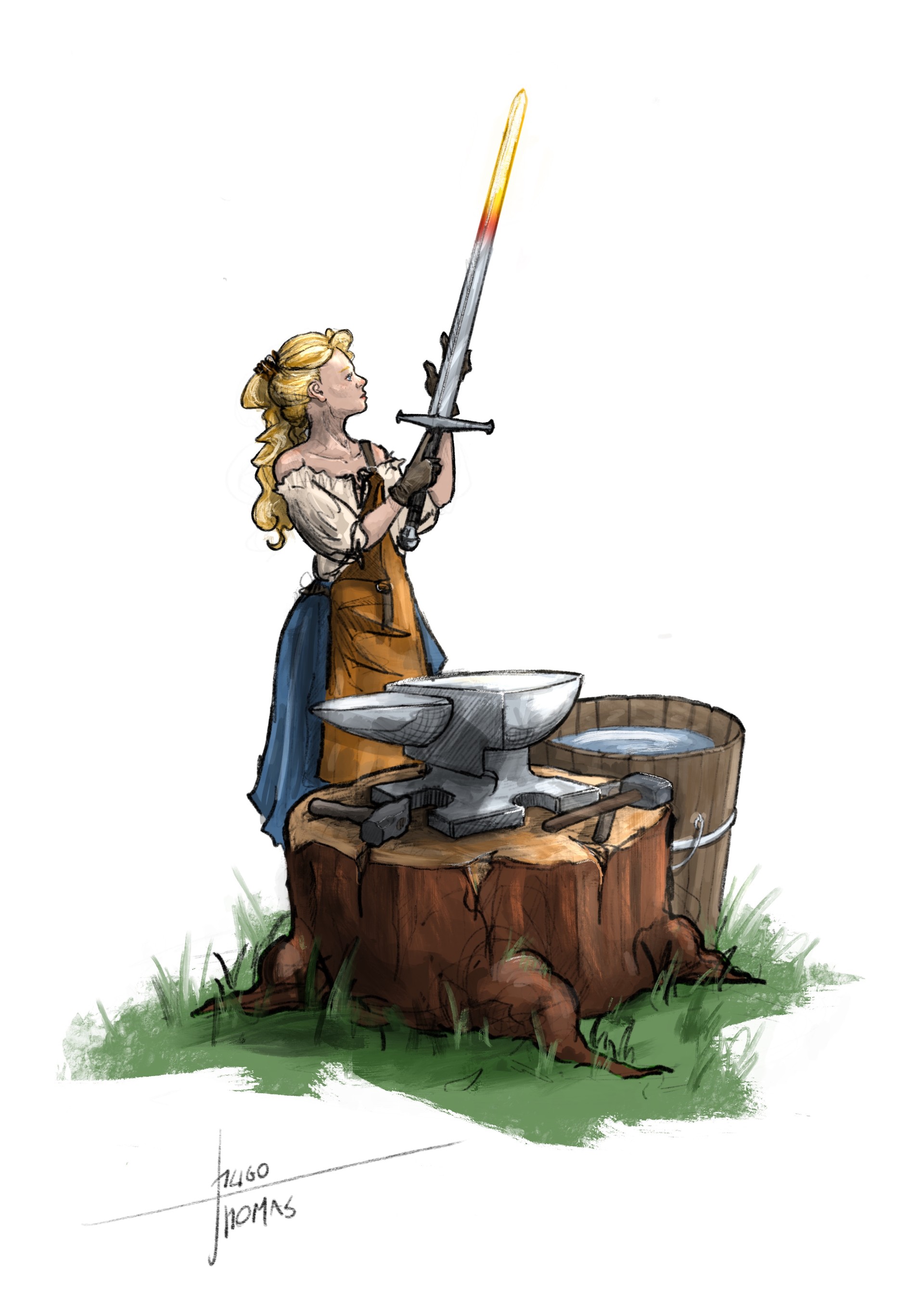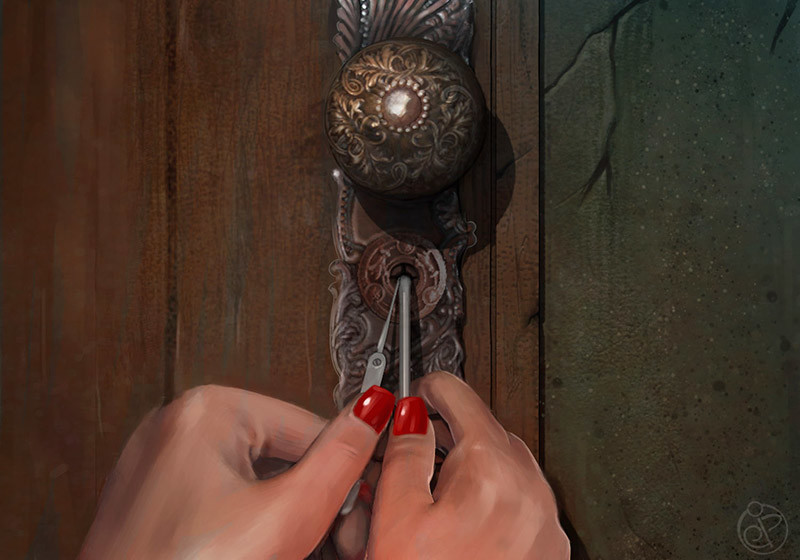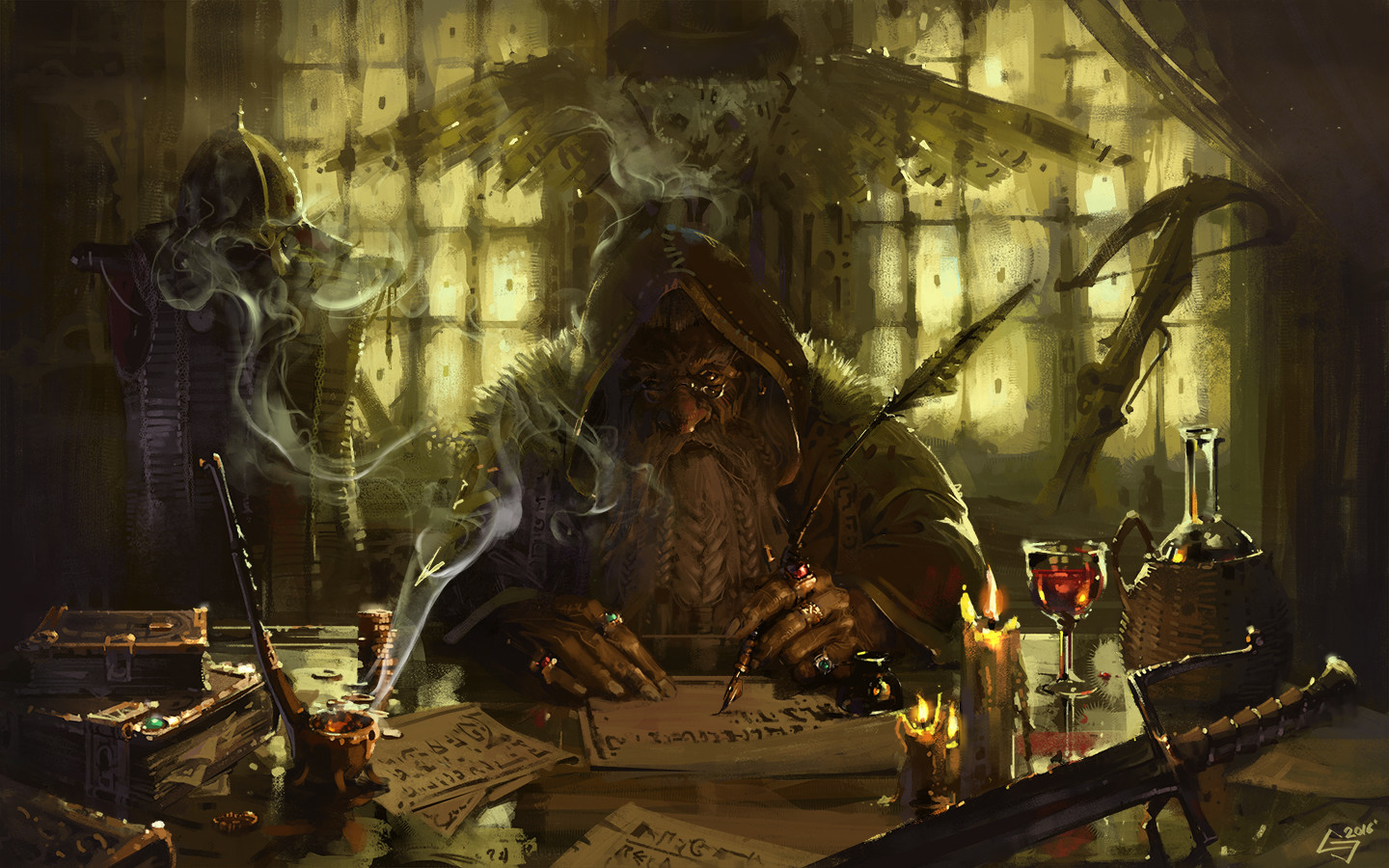 |
| Blacksmith by Arnesson Art / Thomas hugo |
Each character has skill slots equal to their Will score (which can be modified by things like class levels, mutations, or other effects), and each skill takes one slot. Extra languages and magic powers also take skill slots. New skills start with no stars and no marks.
To perform a skill successfully, the player must roll 1d6 and get 2 or lower. Each time the character uses a skill in an important situation, whether successful or failed, they add a mark. When the skill has three marks, the character can spend a week in town (or another safe area) and make a Will save to gain a star. A skill can have up to three stars, and each star increases the target number by one.
 |
| basic challenges by Jayna Pavlin |
Most backgrounds give a skill, and a character's first class level gives them one of three skills randomly selected. New skills can be learned by practicing for a week with a teacher who has at least two stars, or through concentrated practice for a month with ample freedom, tools, and supplies which may be expensive or rare. Trainers should charge or require other compensation.
It's important to note that ranged combat uses the skills launcher, archer, and shooter depending on the weapon, and the attack hits if the skill check is successful. Harder shots can be made by rolling under half the normal target number, and there are surely non-combat applications for these skills as well.
 |
| Dwarven scribe by Michał Sztuka |
Here are some examples of things that can be done with certain skills:
With the butcher skill you could cut open a dead creature and acquire useful organs or body parts, or skin it to get a good sturdy pelt.
Using the smith skill you could repair metal items that had been damaged but not destroyed, or use a forge and metals into armor, weapons, or other items.
No comments:
Post a Comment